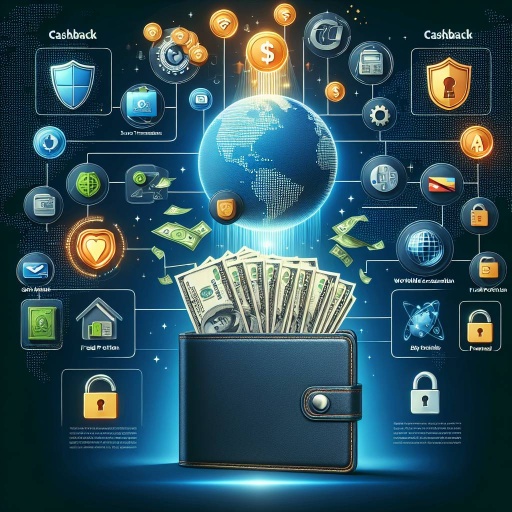In today’s fast-paced world, individuals and businesses alike are constantly searching for ways to stretch their dollars further. One of the most effective strategies to achieve this is through cashback rewards programs. These programs aren’t just a trend; they offer a multitude of advantages that can benefit consumers and retailers alike. In this blog post, we’ll explore the various benefits of cashback rewards, highlight real-world examples, and provide insights into maximizing these rewards.

Benefits
Enhanced Financial Savings
Cashback rewards programs enable consumers to earn a percentage of their spending back at the end of each transaction. This effectively reduces the overall cost of purchases, allowing users to save money on everyday items ranging from groceries to high-ticket items. For instance, if a consumer makes $2,000 in purchases and receives a cashback reward of 5%, they may earn $100 back, contributing to their overall savings.
Incentivizing Smart Spending
Cashback programs encourage consumers to think carefully about their purchases. Many programs sign customers up for specific categories or merchants, prompting users to consider where they spend money. A user might choose to buy groceries at a store offering higher cashback percentages, thereby encouraging brand loyalty and smart financial choices.
Boosting Customer Loyalty for Businesses
For businesses, cashback rewards act as an enticing invitation for customers to return. By offering rewards, companies can create a competitive edge, fostering loyalty and repeat purchases. For example, credit card companies often pitch cashback rewards to attract consumers, resulting in loyal clientele who continue to use their services.
Positive Economic Impact
Cashback rewards can stimulate local economies. By incentivizing consumers to shop at local businesses, communities benefit from increased spending. A study showed that consumers are 25% more likely to shop locally if they’re offered cashback incentives through dedicated rewards programs. This not only helps sustain local businesses but also contributes to job creation in the area.
Promotion of Financial Literacy
Cashback rewards programs often come with tools for tracking spending habits, budgets, and cash flow management. These features promote financial literacy as consumers begin to better understand their expenses and income. Users can analyze their cashback earnings, encouraging them to set future budgeting goals.
Use Cases
A Frequent Traveler’s Experience
Description: Consider a traveler who frequently books flights and hotels using a cashback credit card. By consistently utilizing the card for travel expenses, the traveler accumulates substantial cashback rewards which can be reinvested into future vacations or travel budgets, essentially making the next trip cheaper.
Impact: This not only enriches the traveler’s experience but also ensures frequent engagements with specific airline and hotel partners, benefiting all parties involved.
Grocery Store Promotions
Description: Many grocery chains offer cashback rewards programs that can be applied on regular shopping trips. For example, a supermarket might provide 2% cashback on all purchases through a loyalty card.
Impact: This encourages more shoppers to buy in-store rather than online, thus supporting local grocery businesses and enhancing customer engagement.
Statistics
- Consumers have reported an average cashback return of 1-5% on their purchases, according to multiple surveys.: 1-5%
Potential Drawbacks
Limited Redemption Options
Some cashback programs have restrictions on how rewards can be redeemed, which may frustrate users who find certain limitations hindering their access to the money they have earned.
Potential for Overspending
The allure of earning cashback can sometimes lead consumers to overspend or choose more expensive products than they usually would, negating the benefits of any rewards earned.
Comparison With Alternatives
Cashback vs. Credit Card Points
While cashback rewards provide straightforward savings based on purchases, credit card points systems often require users to navigate complex redemption structures. Cashback is easier to understand and utilize whereas points systems can create confusion.
Cashback vs. Discounts
Cashback differs from direct discounts, as it provides a delayed benefit rather than immediate savings. While discounts are beneficial at the point of sale, cashback rewards accumulate over time, rewarding users for dedicated spending.
FAQs
How do cashback rewards work?
Cashback rewards work by offering a percentage of the amount spent back to the user. For example, if a credit card offers 2% cashback, every $100 spent will yield $2 back.
Are cashback rewards taxable?
Generally, cashback rewards are considered a rebate and are not taxable as income.
Can you combine cashback rewards with other discounts?
Yes, in most cases, you can apply discounts to your purchase and still earn cashback on the reduced amount.
Do all retailers offer cashback?
Not all retailers provide cashback options. It’s important to check with specific merchants or cashback platforms to understand where rewards can be earned.
Is there a limit to how much cashback I can earn?
Many programs do have caps on the total cashback earned within a certain period, but limits vary by program.
Tips for maximizing benefits
Understand the Terms
Familiarize yourself with the cashback program’s terms such as minimum spend limits, eligible categories, and redemption criteria to maximize your earnings.
Use Cashback Cards for All Purchases
Utilize cashback credit cards for all qualified purchases to rack up rewards efficiently, ensuring you do not miss out on potential cashback opportunities.
Combine with Promotions
Look for additional store discounts, sales, or limited-time offers that can be combined with your cashback program to amplify your savings.
Conclusion
In conclusion, cashback rewards programs are an effective tool that benefits consumers, businesses, and the economy as a whole. By providing incentives for spending and promoting customer loyalty, they foster a financial ecosystem conducive to better financial habits and local economic growth. Whether you are an average consumer or a business owner, understanding and utilizing cashback rewards can lead to enhanced saving strategies and smarter spending outcomes.

